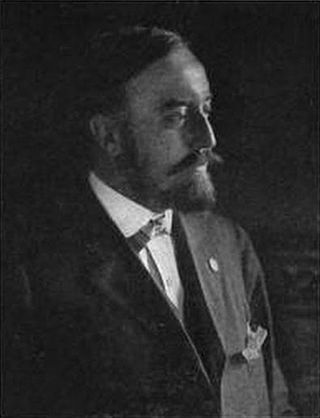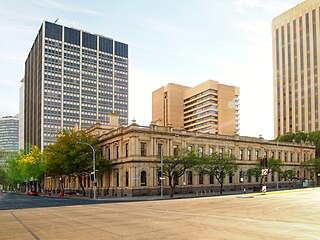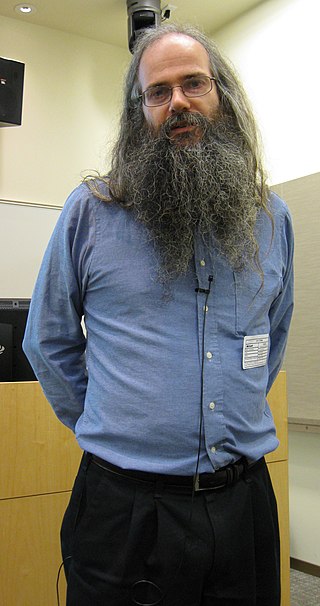Related Research Articles

Carnegie Mellon University (CMU) is a private research university in Pittsburgh, Pennsylvania. The institution was established in 1900 by Andrew Carnegie as the Carnegie Technical Schools. In 1912, it became the Carnegie Institute of Technology and began granting four-year degrees. In 1967, it became Carnegie Mellon University through its merger with the Mellon Institute of Industrial Research, founded in 1913 by Andrew Mellon and Richard B. Mellon and formerly a part of the University of Pittsburgh.

The Heinz College of Information Systems and Public Policy, also known as Heinz College, is the public policy and information college of Carnegie Mellon University in Pittsburgh, Pennsylvania. It consists of the School of Information Systems and Management and the School of Public Policy and Management. The college is named after CMU's former instructor and the later U.S. Senator John Heinz from Pennsylvania.

The School of Computer Science (SCS) at Carnegie Mellon University in Pittsburgh, Pennsylvania, US is a school for computer science established in 1988. It has been consistently ranked among the best computer science programs over the decades. As of 2024 U.S. News & World Report ranks the graduate program as tied for No. 1 with Massachusetts Institute of Technology, Stanford University and University of California, Berkeley.

The Mellon College of Science (MCS) is part of Carnegie Mellon University in Pittsburgh, Pennsylvania, US. The college is named for the Mellon family, founders of the Mellon Institute of Industrial Research, a predecessor of Carnegie Mellon University.

Carnegie Mellon Silicon Valley is a degree-granting branch campus of Carnegie Mellon University located in Mountain View, California. It was established in 2002 at the NASA Ames Research Center in Moffett Field.

Henry Hornbostel was an American architect and educator. Hornbostel designed more than 225 buildings, bridges, and monuments in the United States. Twenty-two of his designs are listed on the National Register of Historic Places, including the Oakland City Hall in Oakland, California and the Soldiers and Sailors Memorial Hall and Museum and University Club in Pittsburgh, Pennsylvania.

Carnegie Mellon University in Australia was the Australian campus of Carnegie Mellon University's H. John Heinz III College from 2006 in the city centre of Adelaide, South Australia. In June 2022 the operation announced it would close down. Current students will graduate but no new students would be admitted. From 2006 to 2022, over 1200 students completed degrees there.

The School of Design at Carnegie Mellon University is a degree-granting institution within a private university in Pittsburgh, Pennsylvania, United States. The School of Design is one of five schools within the Carnegie Mellon College of Fine Arts offering both under and post graduate education. The School is accredited by Middle States Association of Colleges and Schools and awards BDES, MA, MDES, MPS, MII-PS, DDES, and PhD degrees. The School of Design has 21 full-time and 10 adjunct faculty.

Alan W Black is a Scottish computer scientist, known for his research on speech synthesis. He is a professor in the Language Technologies Institute at Carnegie Mellon University in Pittsburgh, Pennsylvania.

Manuela Maria Veloso is the Head of J.P. Morgan AI Research & Herbert A. Simon University Professor Emeritus in the School of Computer Science at Carnegie Mellon University, where she was previously Head of the Machine Learning Department. She served as president of Association for the Advancement of Artificial Intelligence (AAAI) until 2014, and the co-founder and a Past President of the RoboCup Federation. She is a fellow of AAAI, Institute of Electrical and Electronics Engineers (IEEE), American Association for the Advancement of Science (AAAS), and Association for Computing Machinery (ACM). She is an international expert in artificial intelligence and robotics.

Subra Suresh is an Indian-born American engineer, materials scientist, and academic leader. He is currently Professor at Large at Brown University and Vannevar Bush Professor of Engineering Emeritus at the Massachusetts Institute of Technology (MIT). He was Dean of the School of Engineering at MIT from 2007 to 2010 before being appointed as Director of the National Science Foundation (NSF) by Barack Obama, where he served from 2010 to 2013. He was the president of Carnegie Mellon University (CMU) from 2013 to 2017. Between 2018 and 2022, he was the fourth President of Singapore's Nanyang Technological University (NTU), where he was also the inaugural Distinguished University Professor.
Dan J. Martin is the dean of the College of Fine Arts and the Stanley and Marcia Gumberg Professor in the School of Drama at Carnegie Mellon University in Pittsburgh, Pennsylvania, USA. Martin has been at Carnegie Mellon since 1992 when he joined the faculty to lead and develop the Master of Arts Management (MAM) Program, jointly with the Heinz College, that provides professional graduate-level management training for not-for-profit arts/culture organizations. Martin also established the Master of Entertainment Industry Management (MEIM) Programs and the Center for Arts Management and Technology. Since 2004, Martin has taught annually at the University of Bologna (Italy) in the Gestione e Innovazione delle Organizzazioni Culturali e Artistiche (GIOCA) — Management and Innovation in Arts and Culture Organizations.
Angel G. Jordan was a Spanish-born American electronics and computer engineer known as the founder of the Software Engineering Institute (SEI) and co-founder of the Robotics Institute at Carnegie Mellon University (CMU) and served on its faculty for 55 years, since 2003 as Emeritus. He was instrumental in the formation of the School of Computer Science (SCS) at Carnegie Mellon. He has made contributions to technology transfer and institutional development. He served as Dean of Carnegie Mellon College of Engineering and later as the provost of Carnegie Mellon University.

The Ray and Stephanie Lane Computational Biology Department (CBD) is one of the seven departments within the School of Computer Science at Carnegie Mellon University in Pittsburgh, Pennsylvania, United States. Now situated in the Gates-Hillman Center, CBD was established in 2007 as the Lane Center for Computational Biology by founding department head Robert F. Murphy. The establishment was supported by funding from Raymond J. Lane and Stephanie Lane, CBD officially became a department within the School of Computer Science in 2009. In November 2023, Carnegie Mellon named the department as the Ray and Stephanie Lane Computational Biology Department, in recognition of the Lanes' significant investment in computational biology at CMU.

Argo AI LLC was an autonomous driving technology company headquartered in Pittsburgh, Pennsylvania. The company was co-founded in 2016 by Bryan Salesky and Peter Rander, veterans of the Google and Uber automated driving programs. Argo AI was an independent company that built software, hardware, maps, and cloud-support infrastructure to power self-driving vehicles. Argo was mostly backed by Ford Motor Co. (2017) and the Volkswagen Group (2020). At its peak, the company was valued at $7 billion.
Urban Design Associates is an international urban design and architecture firm headquartered in Pittsburgh, Pennsylvania, United States.

Farnam Jahanian is an Iranian-American computer scientist, entrepreneur, and academic. He serves as the 10th president of Carnegie Mellon University.
Advanced Robotics for Manufacturing (ARM), also known as ARM Institute, is a consortium created in 2017 through a Department of Defense grant won by Carnegie Mellon University. ARM is structured as a public-private partnership and the Manufacturing USA Institutes, a network of 16 institutes dedicated to advancing technologies used in manufacturing. ARM was the 14th institute created and focuses on funding innovations in robotics and workforce development.
Matthew Johnson-Roberson is an American roboticist, researcher, entrepreneur and educator. Since January 2022 he has served as director of the Robotics Institute at Carnegie Mellon University. Previously he was a professor at the University of Michigan College of Engineering since 2013, where he co-directed the UM Ford Center for Autonomous Vehicles (FCAV) with Ram Vasudevan. His research focuses on computer vision and artificial intelligence, with the specific applications of autonomous underwater vehicles and self-driving cars. He is also the co-founder and CTO of Refraction AI, a company focused on providing autonomous last mile delivery.

Carnegie Mellon University Africa, in Kigali, Rwanda, is a global location of Carnegie Mellon University. CMU-Africa offers master's degrees in Information Technology, Electrical and Computer Engineering, and Engineering Artificial Intelligence. CMU-Africa is part of the Carnegie Mellon College of Engineering. The College of Engineering is top-ranked. In U.S. News & World Report's 2024 graduate rankings, the College of Engineering was ranked #5.
References
- ↑ "CMU - Remaking Cities Institute - Carnegie Mellon University".
- ↑ Quick, Stephen; Kurland, Kristen; Carter, Donald; Trybus, Jessica; Corbett, Thomas; Twigg, Andrew (2019). "3D/Data Visualization for Urban Design and Planning". doi:10.1184/R1/8021123.v1.
{{cite journal}}: Cite journal requires|journal=(help) - ↑ "Millvale Mobility: Connecting Millvale to the River and the Region by Sai Prateek Narayan - Issuu". 10 July 2018.
- ↑ Issue, October 2105, https://issuu.com/cfalleghenies/docs/vision_2025_strategic_vision_with_a
- ↑ Johnstown Vision 2025, https://johnstown25.com
- ↑ Stephanie Hacke, "Study Explores Potential Changes to Busy Route 51 Corridor, July 22, 2015, https://archive.triblive.com/news/study-explores-potential-changes-to-busy-route-51-corridor/
- ↑ Carter, Donald K.; Quick, Stephen; Smith, Stephen; Mondor, Christine; Folan, Patricia (2016). "Highway Corridor Transformation Research Study - Proof of Concept". doi:10.1184/R1/6620342.v1.
{{cite journal}}: Cite journal requires|journal=(help) - ↑ Sam Bojarski, "Phase 1 of Route 65 Study Complete," Trib Live, November 25, 2019, https://sewickley.triblive.com/phase-1-of-route-65-study-complete/
- ↑ Kilt Hub, Carnegie Mellon University, January 2016, https://kilthub.cmu.edu/articles/LED_Street_Light_Research_Project_Part_II_New_Findings/6075989
- ↑ "Urban Laboratory - Remaking Cities Institute - Carnegie Mellon University". www.cmu.edu. Archived from the original on 2009-12-17.
- ↑ "Remaking Post-Industrial Cities: Lessons from North America and Europe".
- ↑ Alphabet City, Lecture, October 23, 2018, https://www.alphabetcity.org/events/remaking-post-industrial-cities-with-don-carter/
- ↑ "Ray Gastil".
- ↑ Tom Davidson, "Pittsburgh Planning Chief Ray Gastil to join CMU Faculty," TRIB Live, June 22, 2019 https://triblive.com/local/pittsburgh-allegheny/pittsburgh-planning-chief-ray-gastil-to-join-cmu-faculty/
- ↑ "Home". vanalen.org.
- ↑ River Cities, City Rivers — Thaïsa Way. Dumbarton Oaks Colloquium on the History of Landscape Architecture. Harvard University Press. 4 June 2018. ISBN 9780884024255.